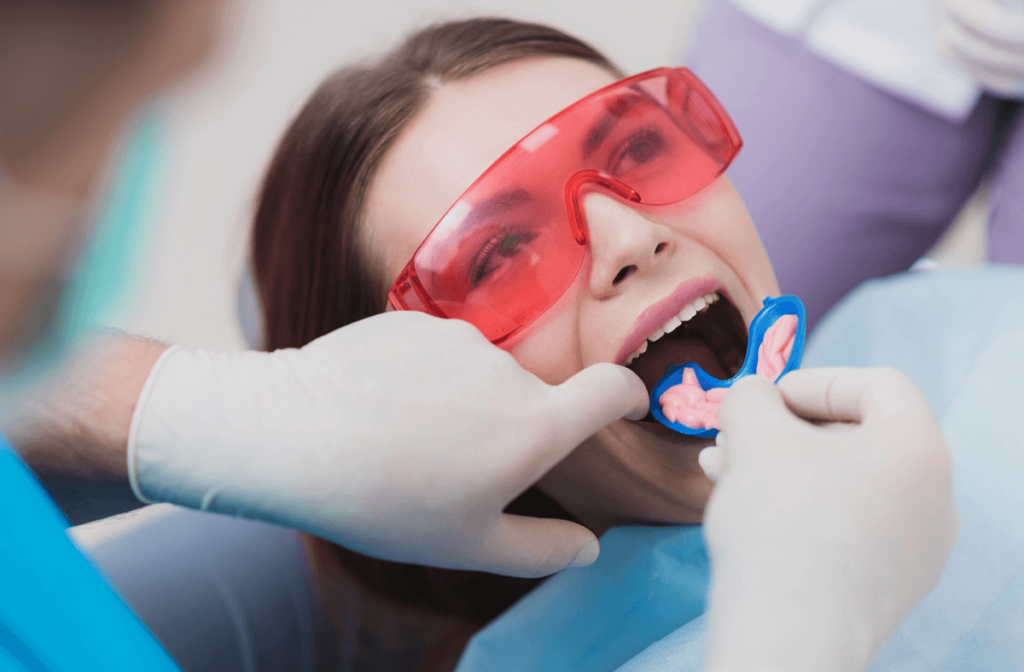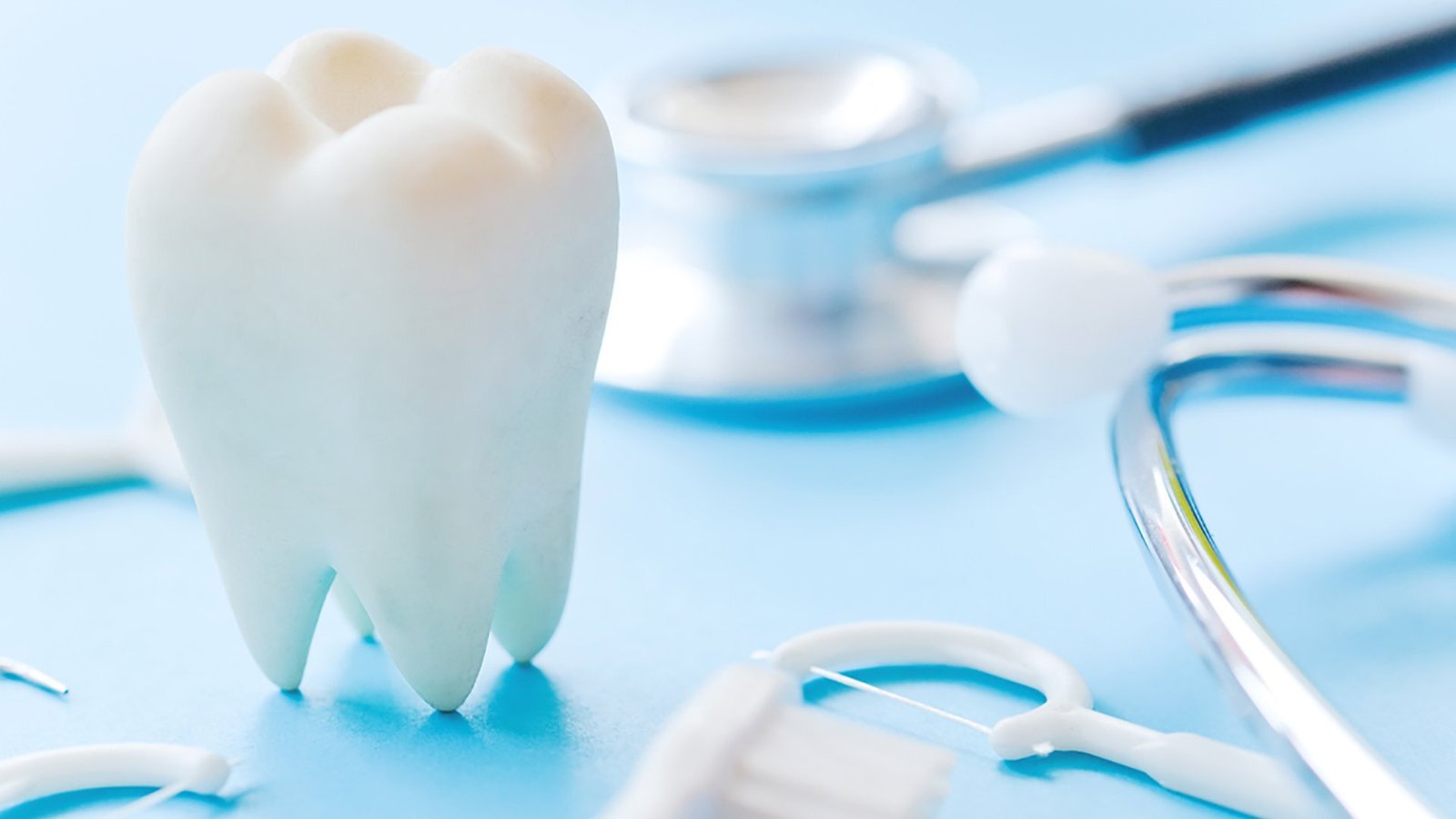Having good oral hygiene is a consequence of being overall well, something that influences quality of life as well as helps us possess healthy teeth. As a way of sustaining this oral health, perhaps the most valuable but efficient of the lot is a dental fluoride treatment.

Fluoride is one of the minerals that are predominantly found everywhere, but in this treatment, a considerable amount of fluoride is administered to a patient. Not only does this treatment prevent tooth decay at an early stage, but it kills the bacteria in the mouth and hardens the enamel of your tooth structure. The majority of dentist professionals swear by this treatment as they believe this is a very useful and safe way to regain the health of teeth.
If you are interested to know more about the benefits of dental fluoride treatment, its process, and how the process is carried out? Read on further.
- Dental Fluoride Treatment: In Glance
- Benefits of Fluoride Treatment
- How Are Fluoride Treatments Applied?
- Different Types of Fluoride Dental Treatment Options
- Who Needs Fluoride Dental Treatment?
- Is It Worth Getting Fluoride Treatment At A Dental Clinic?
- Key Things to Consider Before Getting Treatment
- How Often Should You Have Fluoride Treatment?
- Do Fluoride Treatments Have Any Side Effects?
- FAQs
Dental Fluoride Treatment: In Glance
Dental fluoride treatment is an effective treatment, where a moderate layer is applied to the enamel of your tooth. This step will stop your teeth from forming cavities and the development of plaque to a certain degree.
Since this fluoride is a mineral, it also stops dental issues such as tooth decay. For ease of understanding, this dental substance is present in different forms:
- Topical fluorides are used directly on the surface of teeth in toothpaste, gels, varnishes, and foams.
- Fluoride is also present in naturally occurring sources like drinking water.
Prescription dental fluoride gel treatment is also recommended for individuals at high risk of cavities. All of these treatments are pain-free and easy for the patient, and extremely effective in building and maintaining healthy overall oral health.
Benefits of Fluoride Treatment
Dental fluoride treatment has many uses. The most important benefits are as follows:
- Prevention of Cavities: Plague development or cavities are significantly enhanced by the application of fluoride, which plays an extremely crucial function in hardening the tooth enamel. Hardening is such an efficient process that the enamel is rendered very acid-resistant, which is produced as a by-product of the metabolic process of bacteria and consuming sweet foods.
- Remineralization of Teeth: Teeth remindemineralize and demineralize constantly. Fluoride replaces the void of lacking minerals and protects the enamel from decaying.
- Prevention of Early Tooth Decay: If your dentist can identify early tooth decay, then there is a good opportunity for it to be restored and treated with fluoride by remineralizing before there is a cavity.
- Less Sensitivity: If you have sensitivity in your teeth, fluoride is the sure shot solution. It makes the enamel of your tooth stronger and averts pain caused due to excessive cold or hot feelings.
- Low-Cost Care: If you do not want to spend a small fortune on costly dental procedures that somehow tend to add up so quickly, then you might be able to fall back on Fluoride dental treatment instead. The particular treatment is aimed at avoiding the future necessity of crowning or filling the tooth repeatedly.
How Are Fluoride Treatments Applied?
The Fluoride mineral, upon contact with the enamel of your tooth, dissolves and creates a compound called fluorapatite. The compound hardens your teeth and increases resistance against attacks of acid on the teeth which cause decay.
The process includes the following steps:
- Step 1. Disinfect Surface: The dentist will first disinfect the surface of your teeth and remove any plaque and debris that may have settled.
- Step 2. Application Of Fluid: Fluoride varnish, foam, or gel is applied with a brush, swab, or tray.
- Step 3. Allow time For Absorption: The fluoride solution is left on the tooth surface for a few minutes so that it can be absorbed into the enamel effectively.
- Step 4. Avoid Consuming Food: Before and after the dental treatment, patients are advised to avoid food supplements that are sticky on their tooth surface in general too. Avoid consuming anything 30 minutes before the treatment and 30 minutes after treatment to achieve maximum benefits in a given period.
Different Types of Fluoride Dental Treatment Options
Here, within this section, we have merely named the two most popular dental fluoride treatments. Look at it:
- Topical Fluoride
Applied to the exterior surface of the teeth directly, topical fluoride Dental Treatments serves an essential purpose in providing the enamel with added strength and hardness from the outside out. They come in many different forms, including:
- Varnishes
- Foams and gels
- Toothpaste and mouth rinses
- Systemic Fluoride
The consumed fluoride is swallowed into the body. Once swallowed, it gets absorbed into the system where it performs the function of a key and fundamental ingredient in hardening and strengthening the teeth from within. This mineral is accessible through multiple sources such as:
- Fluoridated public water.
- Dietary fluoride supplements (tablets or drops).
- Foods that have high levels of fluoride content.
Who Needs Fluoride Dental Treatment?
As much as it is true that fluoride treatment is greatly rewarding for people of all age groups and classes, some sections of the population are likely to be more beneficiaries of such treatment than others.
- Infants and Children and Adolescents: Infants in the age bracket of 6 months to 16 years get the most out of it because their teeth are still growing. Professional dental fluoride gel treatment can do great good in the prevention of cavities and stiffening of enamel, which is the most vital part of good oral health.
- Adults with a cavity history: Persons who are very likely to acquire cavities over and over would do well to consider the value of professional dental fluoride treatment.
- Dry mouth (xerostomia) patients: A dry mouth exposes you to an increased risk of decay because saliva balances acid.
- Restoration patients: If you’ve had crowns, bridges, or braces, fluoride protects from decay around such restorations.
- Radiation Therapy Treated Patients: Radiotherapy for cancer can cause loss of tooth strength and dryness of the mouth. Frequent dental fluoride treatment provides good dental care.
Is It Worth Getting Fluoride Treatment At A Dental Clinic?
Fluoride prevents cavities and has the unique property of reversing early tooth decay and is thus a very good and very effective dental care solution. The remedy is also not expensive, and this provides an opportunity for it to be reached by most people without having to go through hardships related to money. It is, therefore, always highly recommended to visit the services of professionals in an attempt to make full use of the remedy.
Now, if you are looking for professional assistance in getting your Fluoride Dental Treatment right, you can consider joining hands with Aidite, a trusted name in the dentistry industry. They provide treatment with attention to detail and use premium-quality dental tools that not only ensure the success of treatment but deliver effective results.
Key Things to Consider Before Getting Treatment
Dental fluoride gel treatment is reported to be safe to use in the majority of cases, but you must also know that:
- Excessive fluoride exposure has the consequence of causing a condition known as fluorosis, where there is the development of white spots on the enamel of the teeth.
- Professional fluoride treatment is achieved with fluoride at safe levels and with utmost care by trained dental personnel.
- It must be noted that some can feel: Mild nausea due to too much fluoride intake.
- If you have temporary tooth staining, keep up regular oral hygiene. If you are having allergic reactions, we recommend that you talk to your doctor. Some individuals become hypersensitive to any material or fluid and get caught with allergic reactions which is very rare.
- Experts advise that you should wait at least 30 minutes before undergoing the treatment and should also offer another 30 minutes after your treatment has been done. It is also still best not to consume any sticky foods throughout the course of your treatment sessions.
- The fluoride treatment is designed to make your teeth stronger as compared to earlier. Plus, it will prevent the formation of bacteria, cavities, and formation of excessive plaque. However, it can not whiten your teeth.
How Often Should You Have Fluoride Treatment?
How frequently you are treated is up to the individual based on some oral needs for health. The average dentist recommends doing so for 3 to 6 months, but it is based on how likely you are to get cavities. Children, adults, and people with cavities in their history may require more frequent treatments.
Do Fluoride Treatments Have Any Side Effects?
No, if used moderately the fluoride liquid is safe. But excessive fluoride material can cause mild side effects such as white spots on the teeth in children or temporary irritation in children and adults.
FAQs
Is it worth getting fluoride treatment at a dental clinic?
Fluoride prevents cavities and reverses the initial stage of tooth decay and this treatment is quite affordable too. Thus it is always recommended to get the treatment done by professionals for optimal results.
For how long should I wait and not eat after my fluoride treatment?
Experts suggest waiting for at least 30 minutes before and 30 minutes after the treatment and still avoiding sticky food during the sessions of your treatment.
Is fluoride treatment able to make your teeth whiter than before?
The fluoride treatment is designed to make your teeth more stronger as compared to earlier. Plus, it will prevent the formation of bacteria, cavities and formation of excessive plaque. However, it can not whiten your teeth.
How frequently should you get a fluoride treatment?
Though we have a separate section for this above. But it’s typically recommended to undertake fluoride treatment within every 3, 6 or 12 months of period. It also depends upon the cavity risk and oral hygiene you have, so keep up with regular dental visits.
Conclusion
For healthy, strong teeth, fluoride is crucial at any age—child, to prevent cavities, or to maintain dental fillings in good health. This fast, painless, and affordable process is a convenient yet effective way of protecting your smile. Invest your money now—book an appointment with a trusted dental specialist for which we strongly recommend Aidite. Begin your journey to a whiter, healthier smile with award-winning experts now.now.



